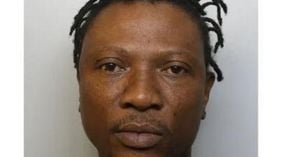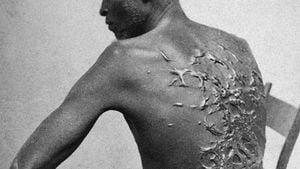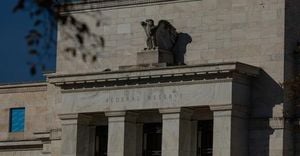The United Nations’ top court has delivered a decisive blow to Equatorial Guinea in its ongoing legal battle with France over a lavish mansion on Paris’s Avenue Foch, a property valued at more than $100 million. On September 12, 2025, the International Court of Justice (ICJ) rejected Equatorial Guinea’s urgent request to force France to return the mansion, which was seized as part of a high-profile corruption investigation targeting Teodoro Nguema Obiang Mangue, the son of Equatorial Guinea’s president and the country’s vice president.
Equatorial Guinea’s legal maneuver, submitted on July 3, 2025, sought provisional measures from the court—essentially, an emergency order to halt any sale of the property and compel its immediate return. But the 15-judge panel, led by presiding judge Yuji Iwasawa, ruled by a wide margin—13 votes to 2—that Equatorial Guinea had failed to show it had a plausible right to reclaim the mansion. As Iwasawa put it, “Equatorial Guinea has not demonstrated that it has a plausible right to the return of the building.”
The dispute centers on a palatial residence on one of Paris’s most exclusive streets, Avenue Foch, long a symbol of luxury and privilege. The mansion was seized by French authorities in connection with a 2017 conviction of Teodoro Nguema Obiang Mangue for embezzling millions of dollars in public funds. Obiang Mangue, who is also the son of Africa’s longest-serving president, Teodoro Obiang Nguema Mbasogo, received a three-year suspended sentence. Along with the mansion, French authorities also confiscated luxury vehicles and large sums of money.
Equatorial Guinea has repeatedly argued that the Paris mansion should be considered diplomatic property, and thus immune from seizure under international law. But according to the Associated Press, the ICJ had already ruled in 2020 that the building was a private residence and not a diplomatic outpost, undercutting Equatorial Guinea’s claim of immunity. The African nation returned to The Hague in 2022, this time invoking a United Nations anti-corruption convention in an effort to force France to return the assets.
During the July hearing, French government lawyers dismissed Equatorial Guinea’s legal gambit as an “abusive maneuver.” France’s agent, Diégo Colas, told the court, “The request constitutes yet another abusive maneuver by Equatorial Guinea.” French officials further insisted that no sale of the mansion was imminent and that the dispute was better suited to diplomatic negotiation than judicial intervention.
For Equatorial Guinea, the case has taken on broader significance, with officials accusing France of “neo-colonial” and “paternalistic” behavior. They have argued that Paris’s actions display “disdain for its sovereignty”—a charge that taps into a long history of fraught relations between African nations and their former colonial powers. Despite these accusations, the court’s decision underscores the limits of such arguments in the face of concrete evidence of corruption and the established rules of international law.
Teodoro Nguema Obiang Mangue’s legal troubles are not limited to France. In 2021, the United Kingdom imposed sanctions on him for misappropriating public funds, including a notorious purchase: Michael Jackson’s bejeweled glove from the “Bad” tour, for which Obiang Mangue reportedly paid $275,000. Investigations into his finances have also been opened in Switzerland and Brazil, highlighting the international dimension of the corruption allegations swirling around the Equatoguinean elite.
The roots of this saga stretch deep into Equatorial Guinea’s political landscape. The country, a former Spanish colony, is awash in oil and gas wealth, yet it remains a nation marked by stark inequality. President Teodoro Obiang Nguema Mbasogo, who has ruled since 1979, holds the distinction of being Africa’s longest-serving head of state. His family’s grip on power has been accompanied by persistent allegations of corruption and extravagant spending, even as much of the population lives in poverty.
According to BBC reporting, the French investigation into Obiang Mangue’s finances began as part of a broader effort to crack down on so-called “ill-gotten gains” by foreign elites in France. The Avenue Foch mansion, with its opulent interiors and prime location, became a symbol of the excesses of Equatorial Guinea’s ruling class. The French courts’ decision to treat the property as a private residence, not a diplomatic mission, was a pivotal moment in the legal saga, effectively clearing the way for its seizure.
Equatorial Guinea’s repeated attempts to reclaim the mansion have met with little sympathy from international courts. The ICJ’s latest ruling not only blocks the immediate return of the property but also signals that the court is unlikely to intervene further unless new evidence or legal arguments are presented. For now, the fate of the mansion remains in the hands of the French authorities, who have indicated that any sale or disposal of the asset would proceed according to French law and in line with international obligations.
The case has drawn attention to the challenges of enforcing anti-corruption measures across borders, especially when high-level political figures are involved. While Equatorial Guinea insists that France is overstepping its bounds, the French government and its allies argue that the rule of law must apply equally to all, regardless of political status or diplomatic claims.
Observers say the ICJ’s decision is likely to have ripple effects beyond this particular mansion. It reinforces the principle that diplomatic immunity cannot be used as a shield for personal enrichment or to evade justice. At the same time, it highlights the ongoing tension between national sovereignty and the global fight against corruption—a struggle that shows no sign of abating.
For the people of Equatorial Guinea, the saga is a stark reminder of the gap between the country’s oil-fueled riches and the reality faced by most citizens. As the international spotlight remains fixed on the Obiang family’s fortunes, calls for greater transparency and accountability in the management of national resources are likely to grow louder.
With the UN’s top court siding firmly with France, the Avenue Foch mansion will remain, for now, a monument not only to luxury but also to the complex interplay of power, law, and justice on the world stage.



